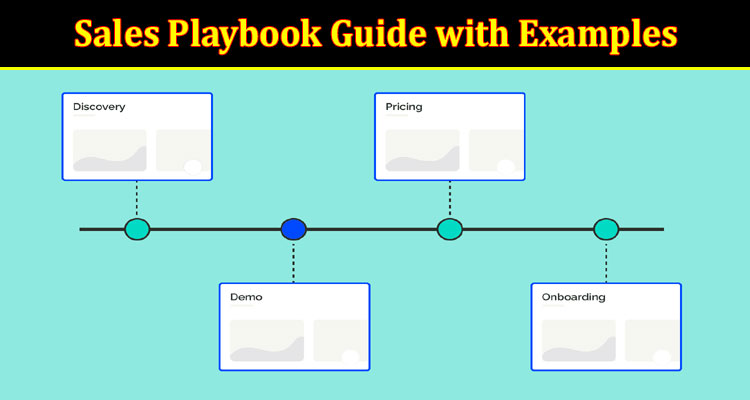In the ever-evolving world of sales, having a well-structured and comprehensive sales playbook is indispensable. A sales playbook serves as a strategic guide, providing your sales team with the tools, tactics, and strategies needed to excel in their roles.
Understanding the Sales Playbook
What is a Sales Playbook?
A sales playbook is a documented resource that outlines your organization’s sales processes, methodologies, and best practices. It serves as a roadmap for your sales team, guiding them through every stage of the sales cycle. A well-crafted sales playbook can lead to increased sales effectiveness, improved consistency, and better overall performance.
Key Elements of a Sales Playbook
A comprehensive sales playbook typically includes the following key elements:
1. Buyer Personas
Understanding your target audience is fundamental. A sales playbook should include detailed buyer personas that describe your ideal customers. Here’s an example:
Buyer Persona:
- Name: Sarah Marketing Manager
- Role: Marketing Manager
- Company: ABC Tech
- Goals: Increase brand visibility and lead generation
- Challenges: Limited marketing budget
2. Sales Process Overview
Define your sales process stages, from lead generation to closing deals. Provide a step-by-step breakdown of each stage. For instance:
Sales Process Stage:
- Stage Name: Qualification
- Description: Determine if the lead meets the criteria for becoming a prospect.
- Key Activities: Conduct initial discovery calls, ask probing questions, assess fit.
3. Sales Messaging
Include templates for emails, scripts, and objection-handling techniques. Here’s an email template example:
Email Template: Follow-Up
vbnet
Copy code
Subject: Re: Our Recent Conversation
Hi [Prospect’s Name],
I hope this email finds you well. I wanted to follow up on our conversation regarding [specific topic]. I believe our solution could address your challenges and [mention benefits].
I’d love to set up a brief call to discuss this further and answer any questions you may have. How does [suggest date and time] work for you?
Looking forward to connecting again.
Best regards,
[Your Name]
[Your Title]
[Your Contact Information]
4. Competitive Analysis
Provide insights into your competitors. Include details on their strengths, weaknesses, and differentiators. Here’s an example:
Competitor Analysis:
- Competitor: XYZ Solutions
- Strengths: Established market presence, robust feature set
- Weaknesses: Higher pricing, limited customer support
- Differentiators: Exclusive partnerships, user-friendly interface
5. Sales Tools and Resources
List and describe the tools and resources available to the sales team. This may include CRM software, email templates, and sales collateral. For example:
Sales Tool: CRM Software
- Description: Our CRM system streamlines lead management, tracks interactions, and provides valuable analytics.
- How to Use: Log all customer interactions, set reminders for follow-ups, and generate reports for performance analysis.
Section 3: Real-World Sales Playbook Examples
Example 1: Cold Calling Script
In the Qualification stage, a well-crafted cold calling script can be invaluable. Here’s a snippet:
Cold Calling Script:
- Objective: To qualify the lead and set up a discovery call.
- Opening: “Hello, [Prospect’s Name]. My name is [Your Name], and I’m calling from [Your Company]. How are you today?”
- Qualifying Questions: Ask probing questions to assess the prospect’s needs and challenges.
- Value Proposition: Highlight the value your solution offers.
- Closing: “Based on our conversation, it seems like there might be an opportunity to work together. Would you be available for a discovery call next week?”
Example 2: Objection Handling
Objection handling is a critical skill for salespeople. Here’s an example:
Objection Handling: Price Concerns
- Objection: “Your product is too expensive.”
- Response: “I understand your concern, [Prospect’s Name]. Let me explain how our pricing is competitive. We offer [mention unique value], which can significantly impact your ROI.”
A well-constructed sales playbook is the foundation of a successful sales team. It equips your sales professionals with the knowledge and resources needed to engage prospects effectively, overcome objections, and close deals. By including detailed buyer personas, outlining your sales process, providing sales messaging templates, offering competitive analysis, and listing relevant sales tools, your sales playbook becomes a comprehensive guide that empowers your team to excel in the dynamic world of sales.

